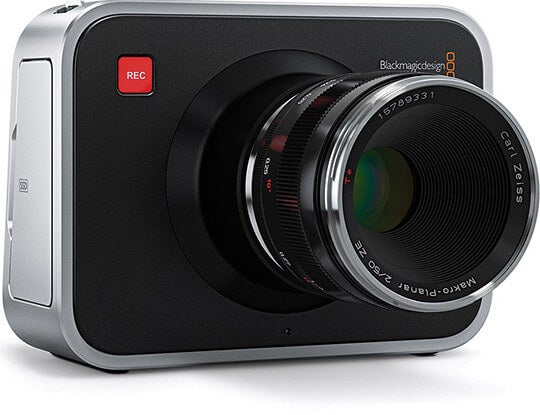Posted on 4/19/2015 in Business and Strategy
By Dean Dorazio
The video production industry is not what it once was. Intense competition in the marketplace is driving down the cost of professional cameras, causing manufacturers to develop products to be sold at a lower price tag (the $1,000-$3,500 range). While these niche cameras still deliver high quality images, they lose functionality in other areas and are not capable of producing a high quality product on their own. The main players in this market are Canon, Sony, Panasonic, and relative newcomer Black Magic. Those who buy these cameras (mostly professional or semi-professional videographers) don’t always realize that to make these cameras fully functional, they will most likely end up spending more than they bargained/budgeted for.
So before you invest in one of these professional cameras, consider the additional investments in equipment you will need to achieve professional results.

Lenses
To keep costs down and image quality high, professional video camera manufacturers are focusing on image quality through the implementation of various sensors, allowing them to be compatible with a variety of lenses. Different lenses react differently to the sensors enabling you to achieve the look and feel you envision with endless combinations. This is great for flexibility and interchangeability, but lenses are extremely expensive. Factor a new lens into the cost of your camera purchase if you plan to maintain a realistic budget.
A quality lens for your production can range from $500-$50,000, so most professionals tend to rent their lenses on a by-need basis through rental houses and sites like borrowlenses.com.
External Monitors
Along with the exclusion of lenses, camera companies are keeping costs down by including low quality video monitors (or skipping them all together) with their cameras. It is highly recommended by industry professionals that you purchase an external monitor with your camera to monitor composition, exposure and focusing.
ality monitors can range from $300-$1,000.
Storage
You’ll need memory space for your camera to record video and store files. The type of storage required will depend on the format you are recording in and how much you plan to store, the most common choices being SD cards and CF memory cards.
Depending on the storage size and quality, these memory cards range from $20-$200.
Microphones
Previously, video camera purchases included a decent in-camera microphone. Now, some lower-priced professional video cameras either aren’t sold with microphones or lower quality ones used for reference only (to sync sound recorded with an external recorder to the cameras image). It’s necessary to purchase an external microphone for more professional level. Prices vary, but most productions require a shotgun or lavaliere mic. You may also need an XLR adapter depending on the cameras microphone input options. Additionally, external audio recorders are most likely needed to capture audio and require additional cards to store files.
Microphones can range from $200-$600 and audio recorders from $150-$400.
When budgeting for equipment and the cost of cameras for your next video production, keep in mind that the price of the camera is not the final price you will pay to achieve your production goals. If you need additional skills to achieve your vision, let us know and we’ll be happy to chat!
Related Articles

How Do I Optimize My Website for AI?
Why do you need to optimize your website for AI?AI-powered search engines like Google’s AI Overview, Perplexity, and tools such as Microsoft's [...]

Outdated or Outstanding? How to Tell If Your Website Needs a Refresh
Your website is the digital face of your business. It serves as a first impression, a marketing tool, and a resource for potential customers. [...]

Preparing a Website Redesign Budget for 2025: A Step-by-Step Guide
As we approach 2025, businesses are recognizing the necessity of a fresh, user-friendly website to stay competitive in a rapidly evolving digital [...]

